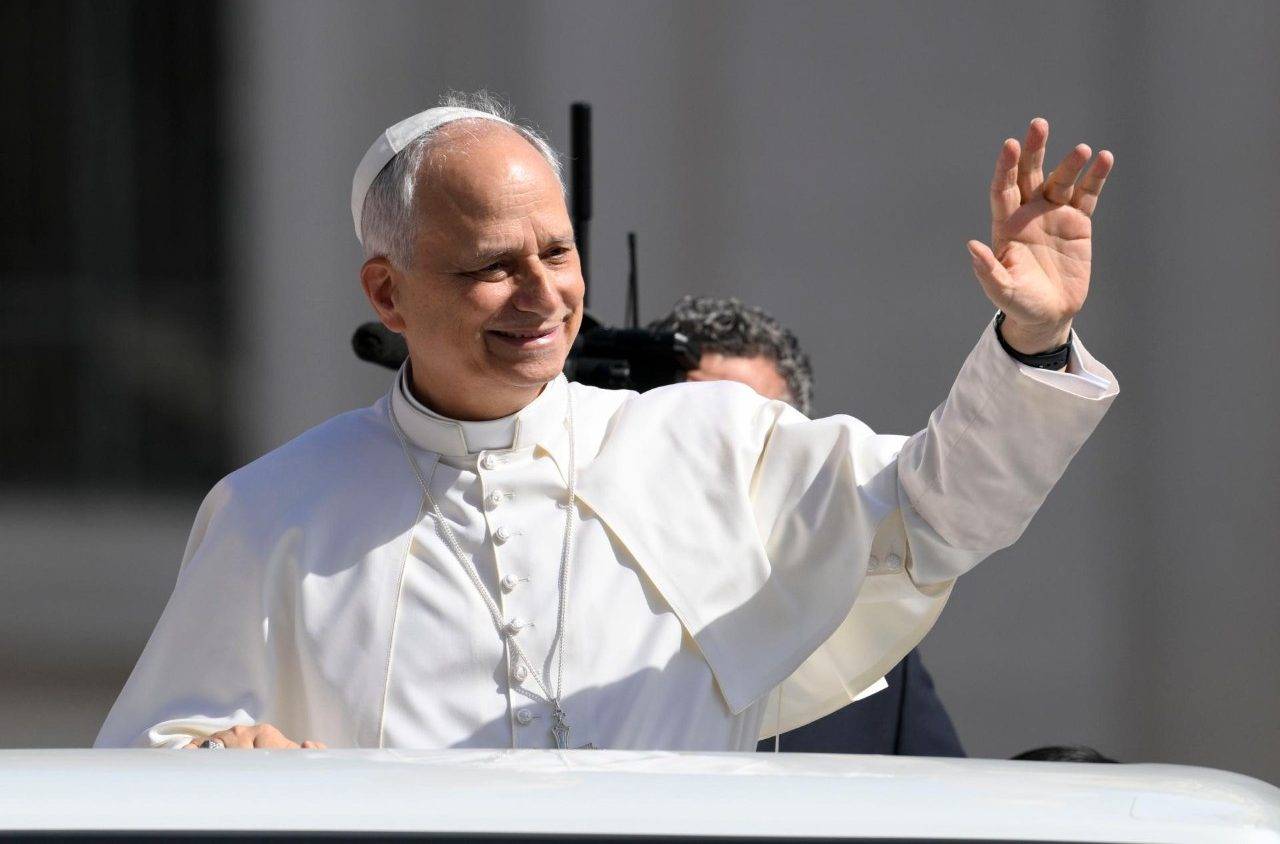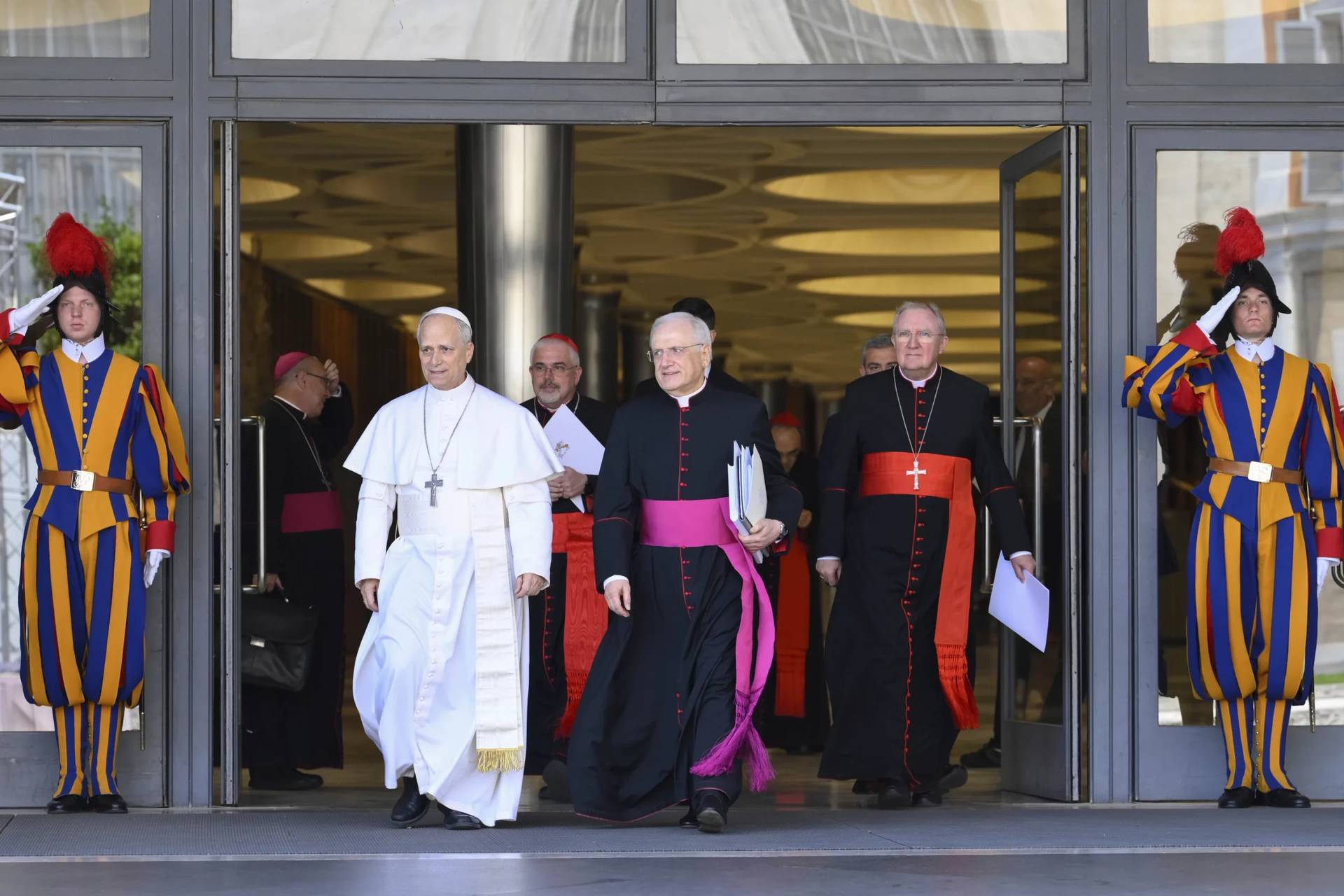In the wake of the latest Roman expression of anti-Pope Francis backlash, in this case a satirical spoof of the Vatican newspaper L’Osservatore Romano designed to make the pontiff look wishy-washy on Catholic doctrine on marriage, let’s stipulate one thing right away.
Anonymous pot-shots such as the fake L’Osservatore, as well as the “Where’s your mercy?” posters that went up around town last Saturday, don’t inspire a lot of credibility. The general rule of thumb is that if you’ve got something to say, put your name on it and stand behind it.
By the way, it’s doesn’t cut it to say one fears reprisals from Francis. Even if there were a legitimate basis to that fear, which is debatable, real reformers over the centuries have accepted such risks as the price of speaking truth to power.
Therefore, it’s not as if the faux L’Osservatore that’s made the rounds will go down as some great act of protest or moral courage, and it’s also not as if we needed it to know some people wish Francis would be more precise on the issue of Communion for divorced and civilly remarried Catholics treated in his document Amoris Laetitia.
The gist of the spoof is to present supposed answers from Pope Francis to five dubia, or questions, submitted to him by four conservative cardinals about Amoris. So far Francis hasn’t responded directly, but in the spoof he does, saying both “yes” and “no” to every question.
Whatever one makes of its merits, I’m going to assert this latest bit of blowback is encouraging in one key sense: It shows that however polarized opinion in some sectors of the Church may have become, at least people haven’t completely lost their sense of humor.
That, actually, is the key difference between the posters and the fake L’Osservatore: The posters were just snarly and mean, but the spoof has a more playful tone and, at times, is downright hilarious, especially for insiders who know the twists and turns in the Pope Francis saga.
For instance, in the bottom right of the fake front page of the paper, there’s a column called Nostre Informazioni (“Our Information”), which appears every day and contains the official acts of the pope. In the spoof, it contains an announcement that Francis had called 92-year-old leftist Italian journalist Eugenio Scalfari to discuss his responses to the dubia, authorizing him to share their conversation with the public.
Scalfari has had several real exchanges with the pope, legendarily neither taping the conversations nor taking notes, so it’s become a favorite parlor game in Rome trying to figure out with any given element of these talks where Francis ends and Scalfari begins.
The news item contains this fake line from Scalfari, allegedly said to the pope at the end of their fictional call: “Some things you’ve said, I won’t report. Some things you’d have me report you didn’t actually say, but I’ll put them in so the reader understands who you are.”
Anybody who’s spent time trying to parse the texts of the Scalfari dialogues had to get a laugh out of that.
At another stage, the fake news report says that Francis showed his responses in advance to Cardinal Christoph Schönborn of Vienna, known to share the pope’s views on the divorced and remarried – terming him, by the way, the prefect in acta of the Vatican’s Congregation for the Doctrine of the Faith, meaning the guy actually calling the shots.
Of German Cardinal Gerhard Müller, theoretically in charge of doctrine but known to have a more conservative line, it says the Holy Father “benevolently spared him the honor of expressing an opinion.”
Again, you may not like the politics behind all this, but it’s still an amusing line.
I’ll grant that a fake news piece claiming Monsignor Pio Vito Pinto, dean of the Roman Rota and a love-to-hate figure for traditionalists after saying Pope Francis could take away the red hats of the four cardinals for defying him, had died of joy after seeing the pope’s responses, was over the top. On the other hand, the spoofers at least had the graciousness to promote Pinto to cardinal before dispatching him.
Why is the humor important?
As anyone with eyes can see, it’s not just the Church that finds itself increasingly polarized these days. We live in an acrimonious, tribalized era, and breaking out of that vicious cycle requires a real commitment to rebuilding zones of friendship across the usual party lines.
There are many keys to developing friendships, but human experience suggests that a healthy sense of humor is often one. C.S Lewis wrote that friendship is born when two people see the same truth. I suspect, however, it’s equally true that friendship is born when two people find the same thing funny, because it suggests there’s another way of processing reality that doesn’t lead immediately to rancor and disagreement.
Granted, the fact that whoever put the fake L’Osservatore together did so anonymously doesn’t make them much of a role model for constructive criticism, and one can obviously debate the political and doctrinal presuppositions underneath the whole thing.
Imagining these folks laughing their heads off as they put it together, however, and the fact that at times the rest of us can even share in the joke, perhaps suggests there’s still hope.
















